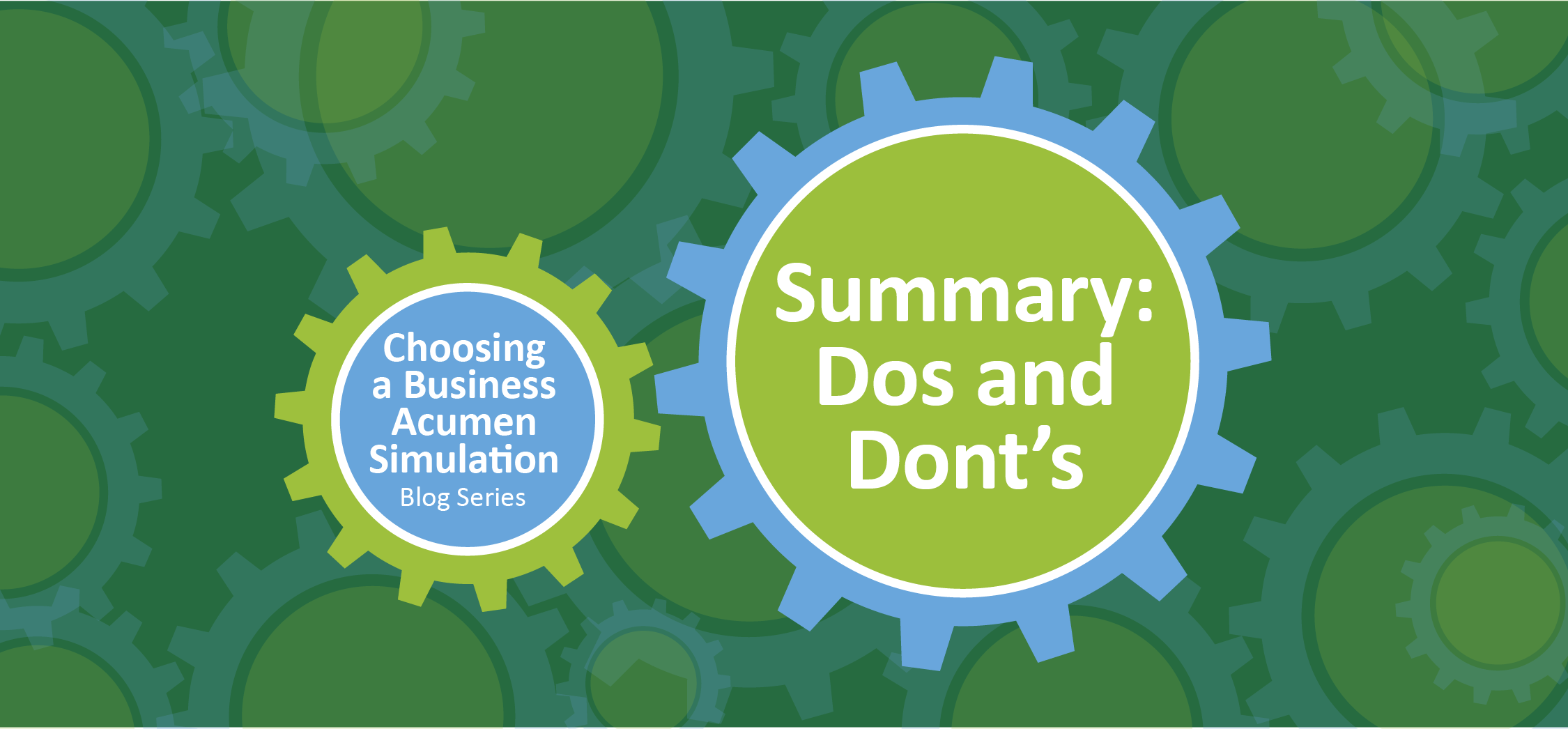Why to Avoid Closed Decision Making in Your Business Acumen Games

Published Date

An open-ended business simulation is the most realistic, so it is the most important to model.[
Business Acumen Gotchas: Closed Decision-Making
As I mentioned in my last post in this Gotchas Series, there are at least 12 ways a business acumen simulation can go wrong.
Near the top of the list? Closed decision-making.
Why Closed Decision-Making Derails Learning
If you want to build a foundational understanding of business—especially among employees at all levels—you need to avoid closed decision-making in your business simulation games.
Here's why:
Decision-making affects accountability.
When teams can make decisions and see the outcomes, they:
- Engage more deeply in the activity.
- Develop a clearer understanding of how business choices impact results.
- Build confidence in applying their learning to real-world situations.
But if you close off decision-making—even unintentionally—you risk losing all of that.
Four Types of Decision-Making in Simulations
Let’s break it down:
- Open Decision-Making (Best for Ownership & Engagement)
- Teams have full control over decisions.
- They can decide:
- Pricing
- Capacity adjustments
- Borrowing levels
- Markets to enter
- Product lines to expand or cut
- The result: Teams own their results and engage emotionally.
- Constrained Decision-Making (Acceptable if Applied Thoughtfully)
- Teams operate within a decision tree.
- They must choose from pre-set options—but the decisions are still theirs.
- The result: They take accountability for their choices, even when options are limited.
- Closed Decision-Making (Problematic for Business Acumen Development)
- Facilitator makes or pre-scripts decisions for participants.
- Teams have no real agency; every group ends up in the same predetermined position.
- The result: Minimal engagement and poor learning retention.
- Random Decision-Making (Fun, but Misleading)
- Dice rolls or card draws introduce chance.
- Results feel arbitrary, not like the real-world business environment.
- The result: Teams can’t apply their learning to actual business decisions.
Key Questions to Ask About Your Simulation
Before selecting a business acumen simulation, ask yourself:
- What kind of decision-making does the simulation use?
- How much chance or randomness is involved?
- Does the game foster accountability?
- Do participants truly own their results?
- Can participants apply their learning to the decisions they make?
Bottom Line
Decision-making is central to learning.
If you want teams to make better decisions in the workplace, let them practice making decisions in the simulation.
The more accountability the simulation requires, the more accountable participants will be in their real-world roles.



